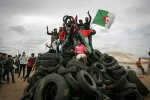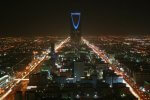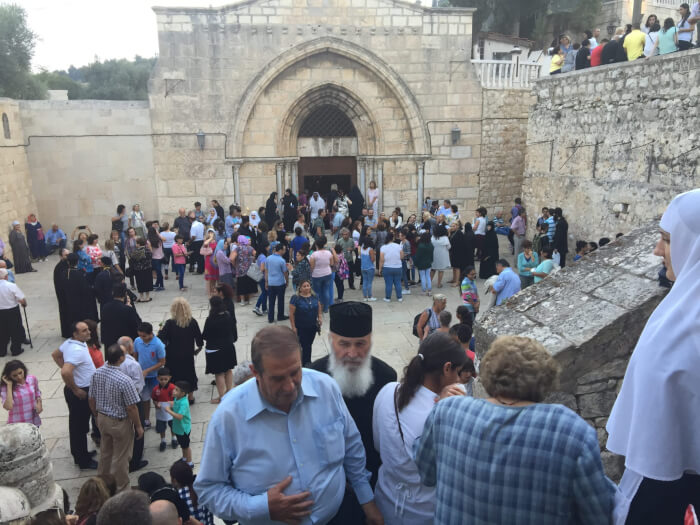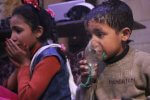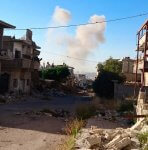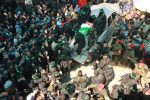Arabs and Muslims Would Never Be Whipped Again
Arab and Muslim masses are changing the imperialist political culture that has been dealt in the region since Bernard Lewis was born.
By Abdennour Toumi
Arabs and Muslims these days increasingly disapprove of a scornful Arabic saying used by tyrant regimes and arrogant elite as a tool of terror, which has ruled them for decades, if not centuries: “Never buy the slave without the baton” (“la teshtari al-a’abda ila oua al-a’asa ma’ahou”). This popular saying was even once used as a racist approach toward Arabs and Muslims in MENA by former U.S. Republican Vice President Dick Cheney, quoting the British historian of Islam and the Middle East, Bernard Lewis, who passed away this week. He told Vice President Cheney: “I believe that one of the things you’ve got to do to Arabs is hit them between the eyes with a big stick. They respect power.”
He was arguably a controversial Middle Eastern scholar because of his close ties with high-profile politicians, his relation with shadowy men of the black box, and decision-making in Western capitals; as an academician he focused on Turkey and its military regime, which he saw as a velvet model of democracy for the Turks. He didn’t hesitate to show his strong support for Israel and fond relations with its leaders, and he advised former President W. Bush to invade and destroy Iraq.
In his comment on the passing of Bernard Lewis the new U.S. Secretary of State Mike Pompeo said: “I owe a great deal of my understanding of the Middle East to his work.”
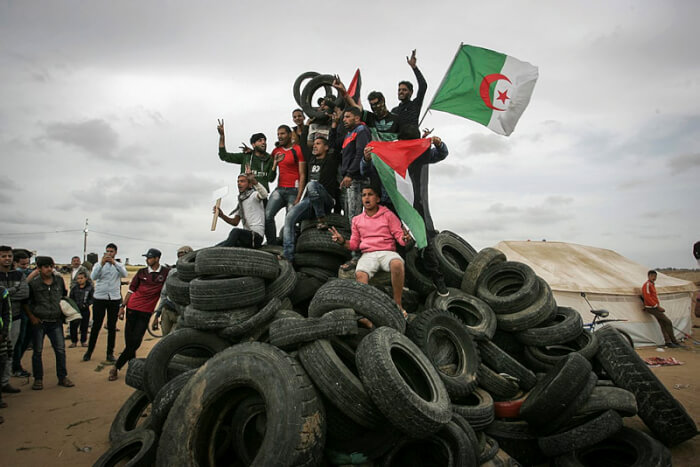
Although current events in the region are proving this statement wrong, still the phrase is well understood by President Trump’s MENA foreign policy team designed by Bernard Lewis’ Middle East probings. But thanks to the Palestinians’ courage and tenacity, and the Arab masses, who stood up to the corrupt regimes in Tunisia, Libya, Egypt, Yemen and Syria and other Arab countries, and more importantly to the al-Jazeera network and millions of social media activists, hundred thousands of tyrannized people in Arab countries are rising up against their delusional regimes and the neo-colonialists without fear — they are changing the imperialist political culture that has been dealt in the region since Bernard Lewis was born.
These days Palestinians have excelled in toppling predictions of Western MENA pro-Israel colonial policies advocates, and have overturned their clueless analysis. The surprising political rallies taking shape in Gaza now called the Return March Movement, and the Arabs’ Spring riots that swept Ben Ali, al-Qadafi, Mubarak and Saleh off the throne are making the rest nervous and anxious like al-Assad. The people whose organizing means of expression against oppression and massacres are social media and al-Jazeera, whose accounts have been reported worldwide and factually analyzed.
On this stance al-Jazeera has become the voice of the wrenched and the iron shield protecting their backs in the region by covering the sociopolitical upheaval and transmitting their despair in order for the world to understand the source of the Arab malaise and fanaticism, hence Israel’s inhuman and harsh occupation; al-Jazeera however, has always been a cleave news channel that quickly gained a large audience in the region for its willingness to broadcast dissenting views, thus crushing the local states’ TV propaganda, but mislabeled by the West and so-called moderate Arab regimes as bearing a political Islam/Islamist agenda.
To many observers the Qatari Royal Family is using the network as the Emirate’s foreign policy soft-power paradigm; yet they support the network in a desire for change and it has created a new societal trajectory in the regional conflicts and crisis management equation.
The network succeeded in breaking taboos, subjects which were used as monopoly games by the regimes such as instrumentalization and the use of the Palestinian cause as political capital and legitimacy to eternalize power. Lately conservative regimes in the region, i.e., the Saudis-Israelis’ “tango dance,” and the UAE region’s “dirty dance” are unveiling the masks and dresses in the entire region’s ballrooms.
Then came the Islamist question, and the paranoia to “fight” terrorism, but as it turned out, people were actually terrorized by their regimes’ stick and the U.S. militarized foreign policy in the region instigated by Bernard Lewis’ apocalyptic theories based on historical dynamic models.
Today, al-Jazeera is showing live images and analyzing what is happening in Gaza, Cairo, Aleppo and Sanaa, despite its critics in Arab countries’ capitals and in Western capitals that still see it as “imminent” threat to the “national security/regimes’ eternity,” people’s political awareness and Western national interest. The intention of the broadcast is to assure that Arabs receive credible news, treating adults like adults, and not like children being fed fairy tales of liberation, development and fighting terrorism, because now the people have a voice and can fight for their own freedom, fight the dissenters and reject the terrorizing policies of the regimes.
One could argue that al-Jazeera and social media broke the power stick and imploded the theory that political parties and pressure groups will usually produce a dialectic struggle to reach power in the civil state (a-dawla al-madania). So Bernard Lewis argued in his MENA “Great Project” led by his flocks in Washington, D.C., who viewed Islam and the West as involved in an existential battle for survival (clash of civilizations), a concept that has proven deeply influential on both sides of the Atlantic to this day.
Arabs are also rejecting critics from the old generation who say that the current generation is not interested in public life, and is caught in the middle of a deadly equation, al-Harga (illegal migration), religious radicalism, and a generation of hitists (“Wall holders”). However, examples sat by Mohammed Boua’azizi and A’ahed Tamimi have resulted in scrambling the cliché, creating a new narrative in the struggle against injustice and occupation.
There is an emerging sociopolitical climate in the region in which people increasingly bypass all official sources (state controlled media) with their self-serving limitations. The moment of truth has come which one can witness first-hand through social media and the broadcasts of al-Jazeera — people have finally awakened from the pain and suffering of the “baton” — one of the things they believe they have earned in the wake of the Arab revolts against tyranny should be the respect of the Arab regimes and the Western powers.


- The Israeli-Palestinian Conflict: Is the Neither-Peace-nor-Security As-sumption Dominating Again? - June 7, 2021
- Algeria: “I Can See Clearly Now” - August 5, 2019
- Majesty Mohammed VI and General Gaïd Salah Tear Down This Wall! - July 29, 2019













